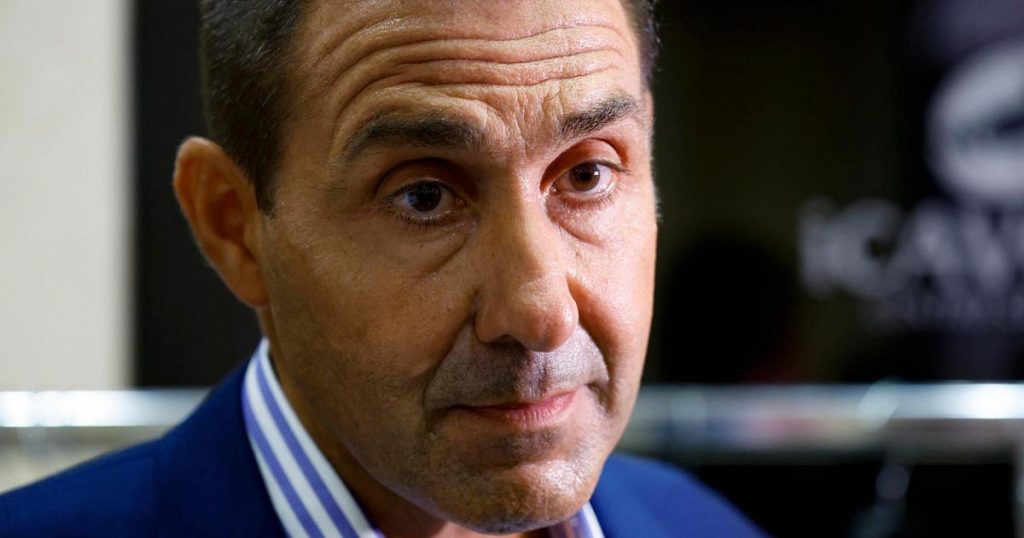In the next few hours, the announcement of Prime Minister Giorgia Meloni’s candidacy for the European elections is expected from the stage in Pescara, where Fratelli d’Italia is gathered for a convention dedicated to Europe. The event will focus on political agenda topics ranging from the National Recovery and Resilience Plan to autonomy. Meanwhile, the controversial candidacy of Roberto Vannacci with Lega continues to stir discussions, especially due to his statement that “disabled people should study in separate classes.” However, there was a clarification from the general stating that his words were misinterpreted. Minister of Economy Giancarlo Giorgetti remarked that Vannacci is not from Lega, while Minister of Education Giuseppe Valditara emphasized that Lega is promoting concrete policies for the inclusion of students with disabilities. Cold reactions from allies distancing themselves from the general’s words were noted, with strong comments from members of other parties like Forza Italia and Noi Moderati.
Another incident that drew attention is the social media post by actor and director Michele Riondino, who shared an old upside-down image of Senate President Ignazio La Russa next to a photo of Benito Mussolini, with the caption “There are no longer fascists like before, only sheep.” After facing backlash, Riondino posted the photo turned right-side-up, stating, “Let’s see if his original position will cause the same scandal.” The post sparked outrage across the center-right political spectrum, with solidarity expressed by even the President of the Chamber Lorenzo Fontana, who described the initiative as detrimental to the institutions.
The upcoming European elections are on the horizon, and Prime Minister Giorgia Meloni is expected to announce her candidacy during a convention in Pescara, where Fratelli d’Italia is gathered to discuss Europe-related topics such as the political agenda, National Recovery and Resilience Plan, and autonomy. Concurrently, discussions surrounding the candidacy of Roberto Vannacci with Lega continue following his controversial statement advocating for disabled students to study in separate classes. The situation prompted a clarification from the general, emphasizing that his words were misconstrued. Minister of Economy Giancarlo Giorgetti distanced Vannacci from Lega, while Minister of Education Giuseppe Valditara highlighted Lega’s efforts towards promoting inclusivity for students with disabilities. There were also reactions from allies within the political spectrum expressing disapproval of the general’s statements, including critical remarks from members of other parties like Forza Italia and Noi Moderati.
Amidst the political tumult, actor and director Michele Riondino sparked controversy with a social media post featuring an old image of Senate President Ignazio La Russa alongside Benito Mussolini, with the caption insinuating a comparison between the two. Following criticism, Riondino reposted the image in its correct orientation, inviting further discussion. The post received condemnation from various members of the center-right political landscape, with solidarity expressed by the President of the Chamber Lorenzo Fontana, who perceived the initiative as harmful to institutional integrity. These incidents underscore the challenges and tensions present within the political arena as the European elections draw near, highlighting the importance of maintaining respectful discourse and upholding democratic values.
As different factions within the center-right navigate the complexities of internal disagreements and public controversies, it is evident that solidarity is crucial to maintain a united front heading into the European elections. The reactions from prominent figures such as Minister of Economy Giancarlo Giorgetti and Minister of Education Giuseppe Valditara reflect the delicate balance in addressing contentious issues while upholding the party’s core principles. The incidents involving Roberto Vannacci and Michele Riondino illustrate the diverse range of challenges faced by politicians and public figures in navigating sensitive topics and maintaining credibility in the eyes of the public. Moving forward, the center-right coalition must strive to address internal conflicts effectively while projecting a unified front to voters, emphasizing a strong commitment to inclusive policies and respectful dialogue in the lead-up to the European elections. By leveraging these moments of contention as opportunities for reflection and growth, the center-right can present a cohesive and compelling vision for the future of Europe, grounded in democratic values and mutual respect.


